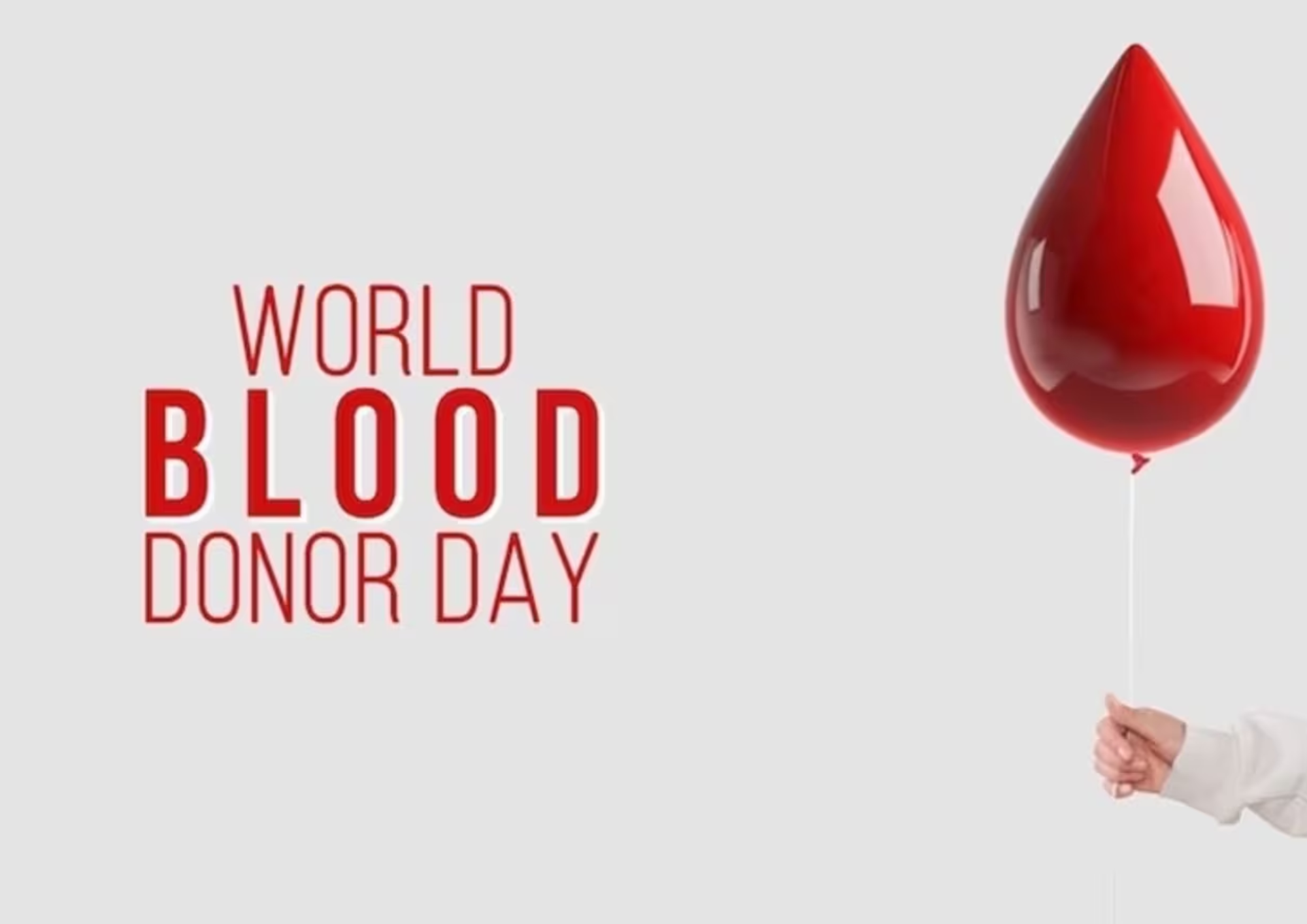
World Blood Donor Day 2024: Date, Theme, History and Significance
World Blood Donor Day, observed annually on June 14th, is a significant occasion dedicated to raising awareness about the importance of blood donation and expressing gratitude to voluntary, unpaid blood donors worldwide. This article delves into the date, theme, history, and significance of World Blood Donor Day 2024.

Source: Calendar
Date
This date was chosen to honor the birthday of Karl Landsteiner, an Austrian biologist, physician, and immunologist who discovered the ABO blood group system, a groundbreaking contribution to the field of transfusion medicine. Since its inception in 2004, World Blood Donor Day has been a platform to promote voluntary blood donation and advocate for safe blood transfusion practices globally.
Theme
Each year, World Blood Donor Day is celebrated with a specific theme that reflects current issues, challenges, or achievements related to blood donation and transfusion. The theme for World Blood Donor Day 2024 is yet to be announced, but it is anticipated to address pertinent topics such as increasing blood donations, ensuring safety.
History
The origins of World Blood Donor Day can be traced back to the World Health Assembly, the decision-making body of the World Health Organization (WHO). In 2004, the World Health Assembly adopted Resolution WHA58.13, which designated June 14th as World Blood Donor Day to acknowledge the vital role of voluntary blood donors in saving lives and supporting healthcare systems.
Since then, World Blood Donor Day has been celebrated annually, with WHO collaborating with national health authorities, blood transfusion services, civil society organizations, and other stakeholders to organize various events and activities. These efforts strive to increase understanding regarding the significance of consistent blood donation, motivate greater participation in voluntary donation programs, and guarantee the accessibility of safe blood for individuals requiring transfusions.
Significance
World Blood Donor Day holds immense significance in promoting the principles of altruism, solidarity, and community engagement. Below are several significant reasons why this commemoration holds importance:
1. Saving Lives: Blood donation is a critical component of modern healthcare systems, as donated blood is used to treat various medical conditions, including emergencies, surgeries, childbirth complications, and chronic illnesses such as cancer and thalassemia. By donating blood, individuals can directly contribute to saving lives and improving the health outcomes of patients in their communities.
2. Bridging Gaps in Blood Supply: Despite significant advancements in medical science, many countries continue to face challenges related to blood supply and accessibility. World Blood Donor Day serves as an opportunity to address these gaps by promoting voluntary, unpaid blood donation and advocating for the establishment of robust blood transfusion services that prioritize safety, quality, and equity.
3. Raising Awareness and Dispelling Myths: Misconceptions and myths surrounding blood donation often deter potential donors from participating in this lifesaving act.
4. Recognizing Blood Donors: World Blood Donor Day provides an occasion to honor and celebrate the selfless generosity of voluntary blood donors who contribute to their communities’ well-being without expecting anything in return. Their altruism and compassion exemplify the spirit of solidarity and humanity, inspiring others to follow suit and make a positive impact through blood donation.
Blood donation serves multiple vital purposes in modern healthcare, each contributing to saving lives and improving health outcomes. Here are some of the primary uses of blood donation.
1. Emergency Transfusions: Blood donations are crucial in emergency situations such as accidents, trauma, and natural disasters where patients may require immediate blood transfusions to replace lost blood and stabilize their condition. In these critical moments, donated blood can mean the difference between life and death.
2. Surgical Procedures: Surgical procedures, including major surgeries such as cardiac surgery, organ transplants, and orthopedic procedures, often necessitate blood transfusions to replace blood loss during surgery and maintain adequate oxygen supply to tissues. Donated blood ensures that surgeons have the necessary resources to perform complex procedures safely and effectively.
3. Treatment of Medical Conditions: Blood transfusions are integral to the management of various medical conditions, including anemia, cancer, bleeding disorders, and chronic illnesses such as thalassemia and sickle cell disease. Patients with these conditions may require regular transfusions of specific blood components, such as red blood cells, platelets, or plasma, to alleviate symptoms, improve quality of life, and prevent complications.
4. Maternal and Neonatal Care: Blood donations play a crucial role in maternal and neonatal care, particularly in cases of childbirth complications such as postpartum hemorrhage, placental abruption, or maternal trauma. Pregnant women may require blood transfusions to address excessive bleeding and ensure maternal and fetal well-being during childbirth. Additionally, donated blood can be used to treat neonatal conditions such as jaundice and hemolytic disease of the newborn.
5. Cancer Treatment: Cancer patients undergoing chemotherapy or radiation therapy may experience a decrease in their blood cell counts, leading to anemia, thrombocytopenia, or neutropenia. Blood transfusions can help replenish depleted blood cells, alleviate symptoms such as fatigue and weakness, and support cancer treatment by maintaining adequate blood counts throughout the course of therapy.
6. Blood Disorders and Hematological Diseases: Individuals with blood disorders and hematological diseases, including hemophilia, leukemia, lymphoma, and aplastic anemia, often require blood transfusions as part of their treatment regimen. Donated blood provides essential blood components, such as clotting factors or healthy red blood cells, to manage these conditions and improve patients’ overall health and well-being.
7. Research and Development: Blood donations also support scientific research and medical advancements in transfusion medicine, hematology, and related fields. Donated blood is used to conduct studies on blood compatibility, transfusion reactions, infectious diseases, and genetic disorders, leading to innovations in blood banking, transfusion practices, and patient care.
Blood donation serves as a lifeline for patients in need, encompassing emergency care, surgical procedures, treatment of medical conditions, maternal and neonatal care, cancer therapy, management of blood disorders, and scientific research.




